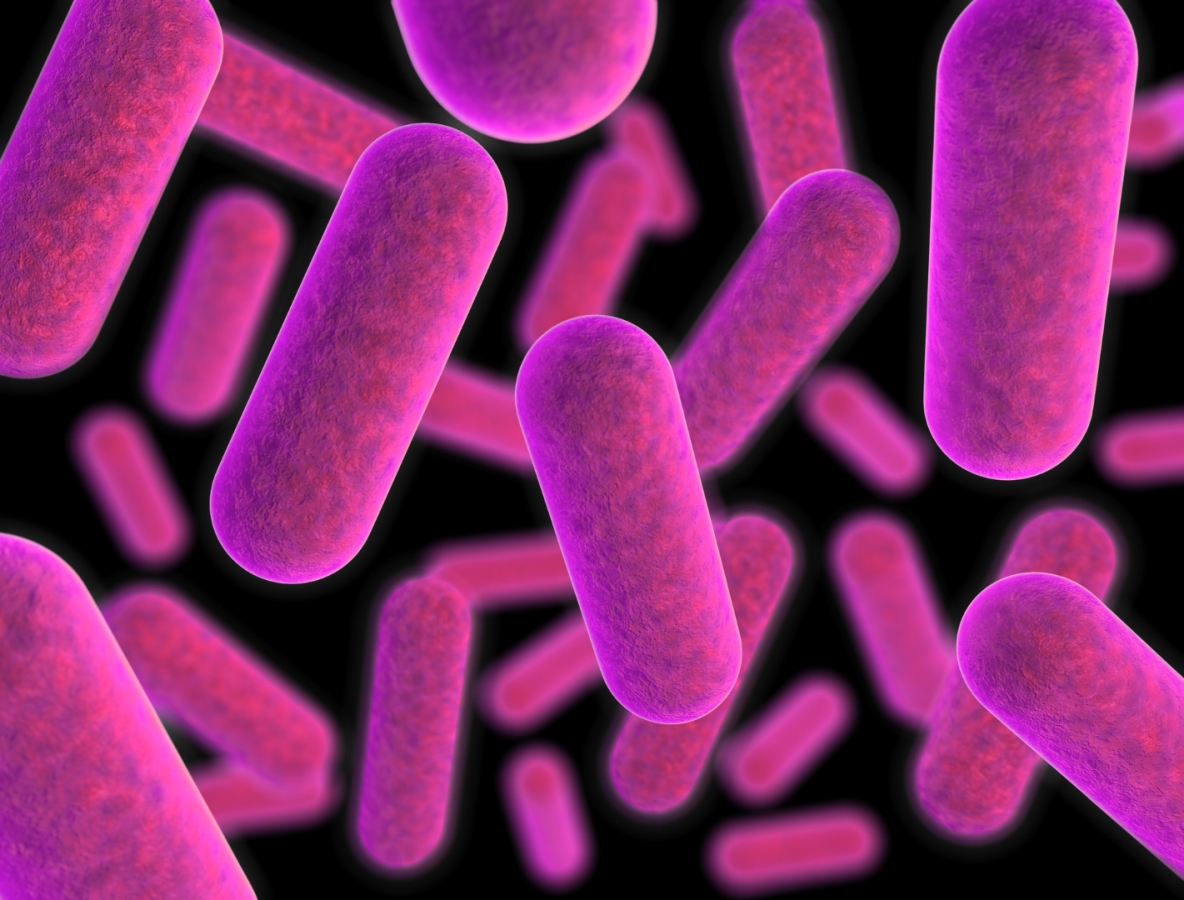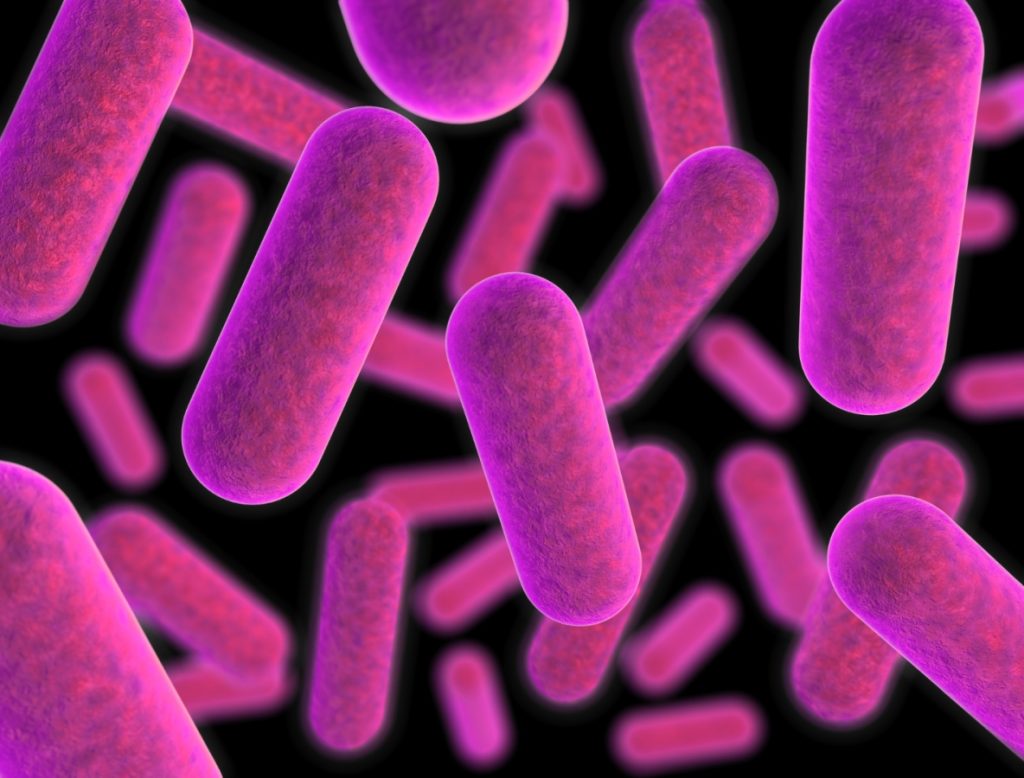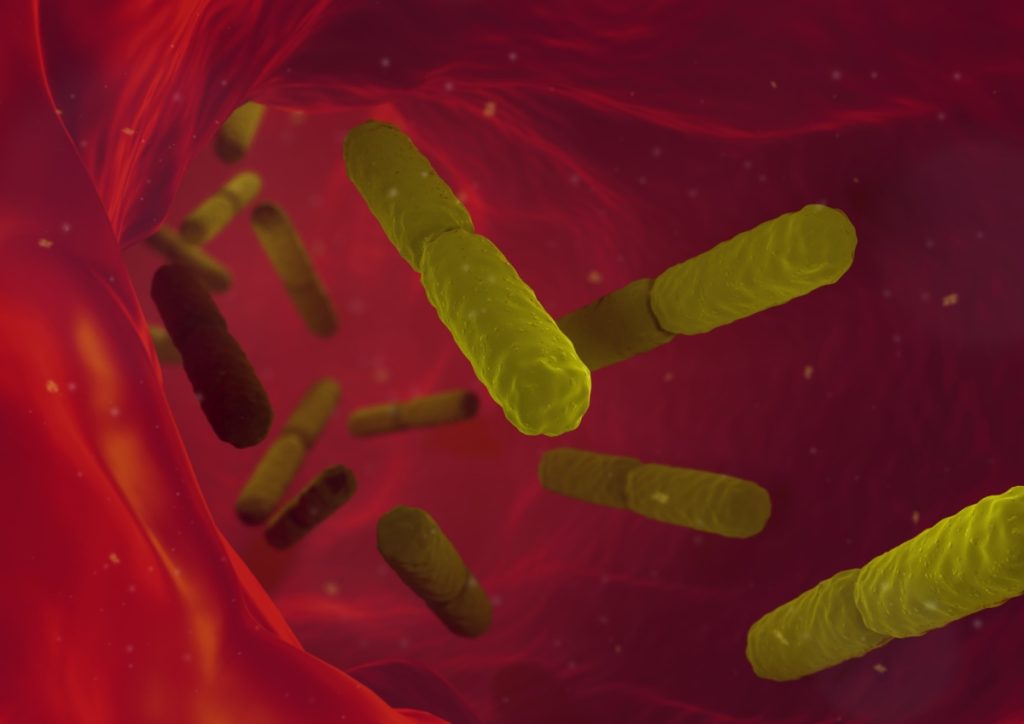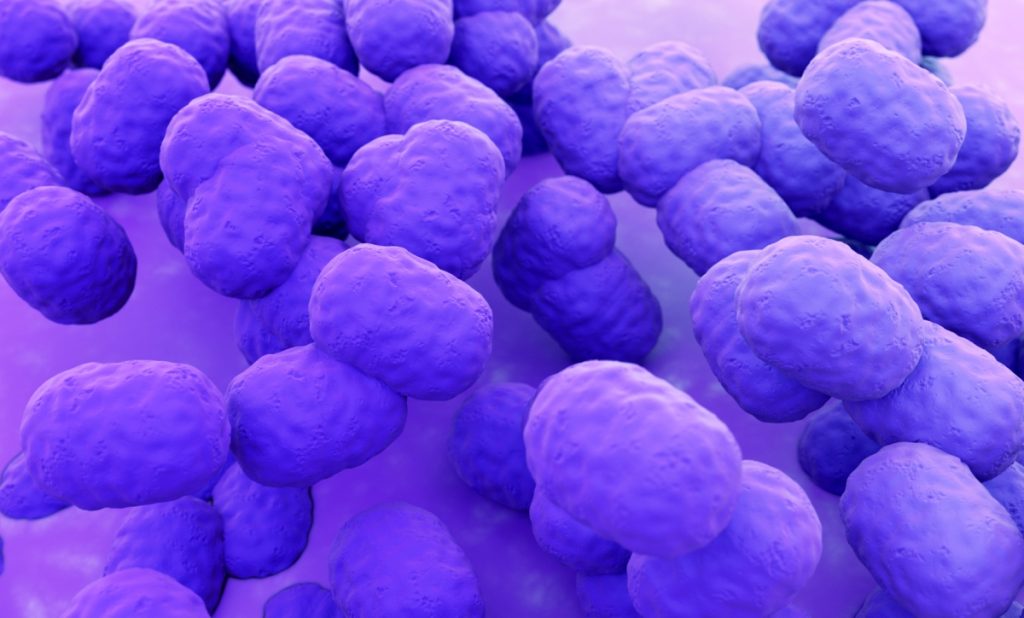
What Are Bacteroidetes And Firmicutes? How Can You Optimize Their Ratios?


What Are Bacteroidetes And Firmicutes? How Can You Optimize Their Ratios?
Your gut flora is a complex community of various microbes, and scientists are still working to fully understand how they function. So far, in-depth studies have identified only a few groups of bacteria that may indicate good health while their imbalance implies poor gut health.
A well-known example of these are Bacteroidetes and Firmicutes. These names refer to a large group of similar species which are measurably enriched or depleted in certain conditions, such as weight gain and poor metabolic health.

What Are Bacteroidetes And Firmicutes?
Over 90% of species in your gut flora are either Bacteroidetes and Firmicutes, underscoring their importance to our health and well-being. Bacteroidetes include ~7,000 species of Gram-Negative bacteria, such as Bacteroides, Prevotella, and Porphyromonas. Whereas, Firmicutes includes Gram-Positive Bacteria with more rigid cell walls, such as Lactobacillus, Faecalibacterium, and Roseburia.
Why Does The Firmicutes/ Bacteroidetes Ratio Matter?
Many human and animal studies suggest that the Firmicutes/Bacteroidetes may affect body composition and obesity as Bacteroidetes may increase calorie loss in the stool. However, there are also some studies that found no correlation.
Also, neither Firmicutes nor Bacteroidetes on their own are good or bad. There are good, bad, and neutral Firmicutes and Bacteroidetes.
Most importantly, you want both in healthy balance for a healthy gut flora. Obese individuals also have other signs of dysbiosis, such as reduced gut bacteria diversity and richness.
Obesity
Many obese animals and humans have Firmicutes to Bacteroidetes ratios. In one study, when the obese humans went on a diet, the Bacteroidetes increased along with weight loss. Therefore, this ratio correlated with fatness. However, dieting also increased Bacteroidetes, making it unclear whether the ratio was the cause or the effect of fatness.
Certain diets can increase Firmicutes, while others can increase Bacteroidetes. However, keep in mind that diet changes (such as changing from omnivore to plant-based) can change over the gut flora in the span of 2 – 3 days.
In a clinical trial of 12 lean and 9 obese adult white men, subjects received 2,400cal/day or 3,400 calorie/day diet for 3 days each, with a 3-day maintenance diet in-between.
The calorie loss in stool correlated with lower Firmicutes and lower Bacteroidetes levels. Lean individuals also lost more calories in the stool than obese individuals. Overall, a 20% increase in Firmicutes in the gut flora may correspond to a ~150 cal from food.
Therefore, increasing Bacteroidetes in your gut may protect against weight loss by reducing calories you derive from food and increasing the calories you eliminate in your stool.

Metabolic Health, Inflammation, And Insulin Sensitivity
The increase in Firmicutes and Actinobacteria, and a decrease in Bacteroidetes may increase the risk of insulin resistance. These changes increase the absorption of lipopolysaccharide (LPS), a bacterial cell wall component, into the blood. Low levels of LPS in the blood contribute to whole-body inflammation, insulin resistance, and other inflammatory conditions.
In a clinical study comparing 99 diabetic patients with 99 healthy controls, the diabetic patients had significantly elevated Firmicutes to Bacteroidetes ratios in their stools. The diabetic patients also had higher inflammatory cytokines.
Now that you understand how Bacteroidetes and Firmicutes can affect your health, let’s look at diet and nutrition to lower Firmicutes and increase Bacteroidetes.
How To Lower Firmicutes And Increase Bacteroidetes In Your Gut Flora
Calorie Restriction And Fasting
Many clinical studies have found that caloric restriction, especially long-term (1-year), can increase Bacteroidetes and lower Firmicutes. Fasting can also increase Bacteroidetes, while reducing Firmicutes.
Exercise
Exercise is great for your gut flora in many ways. It increases your gut flora diversity, reduces Firmicutes, and increases Bacteroidetes.
Glutamine
Glutamine is a non-essential amino acid. It helps maintain the intestinal lining of the gut and can also support a balanced inflammatory response.
A pilot study comprised of 33 adults that were either overweight or obese saw that glutamine supplementation for 14 days decreased the Firmicutes: Bacteroidetes ratio mainly stemming from a decrease in the Firmicutes group rather than an increase in Bacteroidetes. Keep in mind, though, that since this is a small study, we should take the result with a grain of salt.
Fiber
Fiber is a prebiotic that feeds your good gut bacteria. The healthy gut bacteria ferment fiber into beneficial postbiotics, such as short-chain fatty acids.
Generally, a high-fiber diet lowers the Firmicutes: Bacteroidetes ratio. The beneficial effect of a high-fiber diet can be observed after a mere 14 days showing how tractable the microbiome might be Soluble fiber, which is the main substrate for these beneficial bacteria, is found in a variety of food sources including:
- Psyllium
- Oats
- Beans
- Apples
- Citrus fruits
Eating Less Fat And Sugar
A diet rich in fat and sugar promotes the outgrowth of Firmicutes and a decrease in Bacteroidetes. It’s unclear whether this is the cause or the effect, but a high sugar diet increases both Firmicutes and inflammation in your body.
Sleep Quality And Efficiency
Believe it or not, sleep efficiency improves the diversity and abundance of Bacteroidetes. When you have improved sleep physiology (sleep efficiency and total sleep time) there is a positive effect on the microbiota, specifically the Firmicutes to Bacteroidetes ratio. It should be noted, however, that healthy individuals generally report better sleep outcomes than individuals suffering from various ailments. So this observation may simply be correlative rather than cause and effect.
Why Should We Still Take Firmicutes-Rich Probiotics?

Although this article focuses on how to increase Bacteroidetes, it is still necessary to emphasize the importance of both of these groups to promote gut health. Gut bacteria diversity and richness are also important. While a low Firmicutes to Bacteroidetes ratio can be healthy, you also need to maintain these other aspects of a healthy flora.
Most probiotics in supplements like Bifidobacteria and Lactobacilli are good Firmicutes that don’t necessarily increase Firmicutes in your gut. They are temporary visitors that only deliver temporary benefits before leaving in your stool. Counterintuitively, supplementing with these probiotics often help with weight and blood sugar control. These good Firmicutes work by improving gut barrier function and immune balance in the gut.
Firmicutes probiotics help produce beneficial postbiotics, such as butyrate from the fermentation of complex carbohydrates, which serves as an energy source for the cells lining your gut.
What’s more, is that certain probiotics containing Firmicutes play a role in actually reducing the Firmicutes to Bacteroidetes ratio. This reduces fat build-up and maintains the ratio of these groups that is essential to maintaining a healthy gut. So, you want to supplement your diet with fermented foods rich in certain probiotics– even if they contain Firmicutes.
Conclusion
Improving your gut flora can lead to better health overall. Many ways you can do this are basic: eating well, exercising, sleeping, and taking probiotics. You can build a strong, resilient gut that works for you to maintain your best health, aesthetics, and performance.
References
- Qin J, MetaHIT Consortium, Li R, et al. A human gut microbial gene catalogue established by metagenomic sequencing. Nature. 2010;464(7285):59-65. doi:10.1038/nature08821
- Méndez-Salazar EO, Ortiz-López MG, Granados-Silvestre M de LÁ, Palacios-González B, Menjivar M. Altered gut Microbiota and compositional changes in Firmicutes and Proteobacteria in Mexican undernourished and obese children. Front Microbiol. 2018;9:2494. doi:10.3389/fmicb.2018.02494
- Clarke SF, Murphy EF, Nilaweera K, et al. The gut microbiota and its relationship to diet and obesity: new insights: New insights. Gut Microbes. 2012;3(3):186-202. doi:10.4161/gmic.20168
- Palmas V, Pisanu S, Madau V, et al. Gut microbiota markers associated with obesity and overweight in Italian adults. Sci Rep. 2021;11(1):5532. doi:10.1038/s41598-021-84928-w
- Ley RE, Turnbaugh PJ, Klein S, Gordon JI. Microbial ecology: human gut microbes associated with obesity. Nature. 2006;444(7122):1022-1023. doi:10.1038/4441022a
- David LA, Maurice CF, Carmody RN, et al. Diet rapidly and reproducibly alters the human gut microbiome. Nature. 2014;505(7484):559-563. doi:10.1038/nature12820
- Jumpertz R, Le DS, Turnbaugh PJ, et al. Energy-balance studies reveal associations between gut microbes, caloric load, and nutrient absorption in humans. Am J Clin Nutr. 2011;94(1):58-65. doi:10.3945/ajcn.110.010132
- Caricilli AM, Saad MJA. The role of gut microbiota on insulin resistance. Nutrients. 2013;5(3):829-851. doi:10.3390/nu5030829
- Bahar-Tokman H, Demirci M, Keskin FE, et al. Firmicutes/Bacteroidetes ratio in the gut Microbiota and IL-1β, IL-6, IL-8, TLR2, TLR4, TLR5 gene expressions in type 2 diabetes. Clin Lab. 2022;68(9). doi:10.7754/Clin.Lab.2022.211244
- Ruiz A, Cerdó T, Jáuregui R, et al. One-year calorie restriction impacts gut microbial composition but not its metabolic performance in obese adolescents: Gut microbiota responses to calorie restriction in obese. Environ Microbiol. 2017;19(4):1536-1551. doi:10.1111/1462-2920.13713
- Mesnage R, Grundler F, Schwiertz A, Le Maho Y, Wilhelmi de Toledo F. Changes in human gut microbiota composition are linked to the energy metabolic switch during 10 d of Buchinger fasting. J Nutr Sci. 2019;8(e36):e36. doi:10.1017/jns.2019.33
- Monda V, Villano I, Messina A, et al. Exercise modifies the gut Microbiota with positive health effects. Oxid Med Cell Longev. 2017;2017:3831972. doi:10.1155/2017/3831972
- Deters BJ, Saleem M. The role of glutamine in supporting gut health and neuropsychiatric factors. Food Sci Hum Wellness. 2021;10(2):149-154. doi:10.1016/j.fshw.2021.02.003
- de Souza AZZ, Zambom AZ, Abboud KY, et al. Oral supplementation with L-glutamine alters gut microbiota of obese and overweight adults: A pilot study. Nutrition. 2015;31(6):884-889. doi:10.1016/j.nut.2015.01.004
- Trompette A, Gollwitzer ES, Yadava K, et al. Gut microbiota metabolism of dietary fiber influences allergic airway disease and hematopoiesis. Nat Med. 2014;20(2):159-166. doi:10.1038/nm.3444
- Wang Y, Ames NP, Tun HM, Tosh SM, Jones PJ, Khafipour E. High molecular weight barley β-glucan alters gut Microbiota toward reduced cardiovascular disease risk. Front Microbiol. 2016;7:129. doi:10.3389/fmicb.2016.00129
- Oliver A, Chase AB, Weihe C, et al. High-fiber, whole-food dietary intervention alters the human gut microbiome but not fecal short-chain fatty acids. mSystems. 2021;6(2). doi:10.1128/mSystems.00115-21
- Do M, Lee E, Oh MJ, Kim Y, Park HY. High-glucose or -fructose diet cause changes of the gut Microbiota and metabolic disorders in mice without body weight change. Nutrients. 2018;10(6):761. doi:10.3390/nu10060761
- Daniel H, Gholami AM, Berry D, et al. High-fat diet alters gut microbiota physiology in mice. ISME J. 2014;8(2):295-308. doi:10.1038/ismej.2013.155
- Della Corte KW, Perrar I, Penczynski KJ, Schwingshackl L, Herder C, Buyken AE. Effect of dietary sugar intake on biomarkers of subclinical inflammation: A systematic review and meta-analysis of intervention studies. Nutrients. 2018;10(5):606. doi:10.3390/nu10050606
- Smith RP, Easson C, Lyle SM, et al. Gut microbiome diversity is associated with sleep physiology in humans. PLoS One. 2019;14(10):e0222394. doi:10.1371/journal.pone.0222394
- Benedict C, Vogel H, Jonas W, et al. Gut microbiota and glucometabolic alterations in response to recurrent partial sleep deprivation in normal-weight young individuals. Mol Metab. 2016;5(12):1175-1186. doi:10.1016/j.molmet.2016.10.003
- Stojanov S, Berlec A, Štrukelj B. The influence of probiotics on the Firmicutes/Bacteroidetes ratio in the treatment of obesity and inflammatory bowel disease. Microorganisms. 2020;8(11):1715. doi:10.3390/microorganisms8111715
- Parada Venegas D, De la Fuente MK, Landskron G, et al. Short chain fatty acids (SCFAs)-mediated gut epithelial and immune regulation and its relevance for Inflammatory Bowel Diseases. Front Immunol. 2019;10:277. doi:10.3389/fimmu.2019.00277
- Han S, Lu Y, Xie J, et al. Probiotic gastrointestinal transit and colonization after oral administration: A long journey. Front Cell Infect Microbiol. 2021;11:609722. doi:10.3389/fcimb.2021.609722
- Park S, Bae JH. Probiotics for weight loss: a systematic review and meta-analysis. Nutr Res. 2015;35(7):566-575. doi:10.1016/j.nutres.2015.05.008
- Zhang Q, Wu Y, Fei X. Effect of probiotics on glucose metabolism in patients with type 2 diabetes mellitus: A meta-analysis of randomized controlled trials. Medicina (Kaunas). 2016;52(1):28-34. doi:10.1016/j.medici.2015.11.008
- Louis P, Flint HJ. Diversity, metabolism and microbial ecology of butyrate-producing bacteria from the human large intestine. FEMS Microbiol Lett. 2009;294(1):1-8. doi:10.1111/j.1574-6968.2009.01514.x
- Ji YS, Kim HN, Park HJ, et al. Modulation of the murine microbiome with a concomitant anti-obesity effect by Lactobacillus rhamnosus GG and Lactobacillus sakei NR28. Benef Microbes. 2012;3(1):13-22. doi:10.3920/BM2011.0046
2 Comments
Leave a Comment
You must be logged in to post a comment.

This is a topic close to my heart cheers, where are your contact details though?
Hello
My name is Ann-Marie, and I am a Happy Health Concierge at BiOptimizers!
Thanks for commenting! Please take a look at our contact details below.
If you have any questions, please email us at [email protected]
Our help desk support number is 800-719-2467.
Take care and have a nice day!
My very best regards,
Ann-Marie
Happy Health Concierge
BiOptimizers